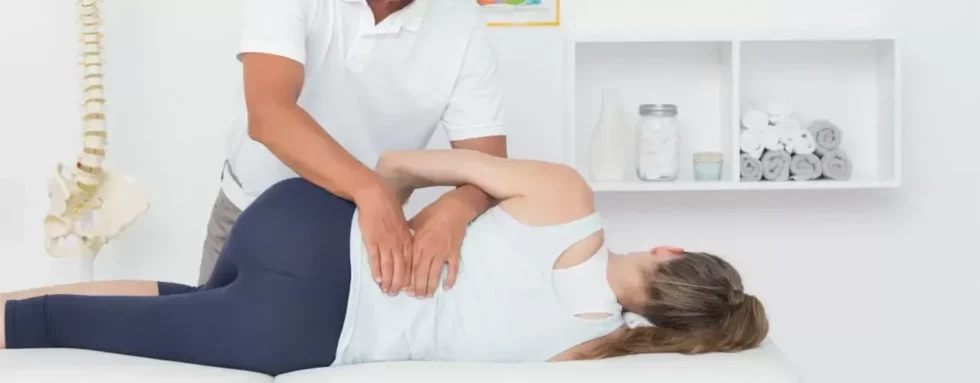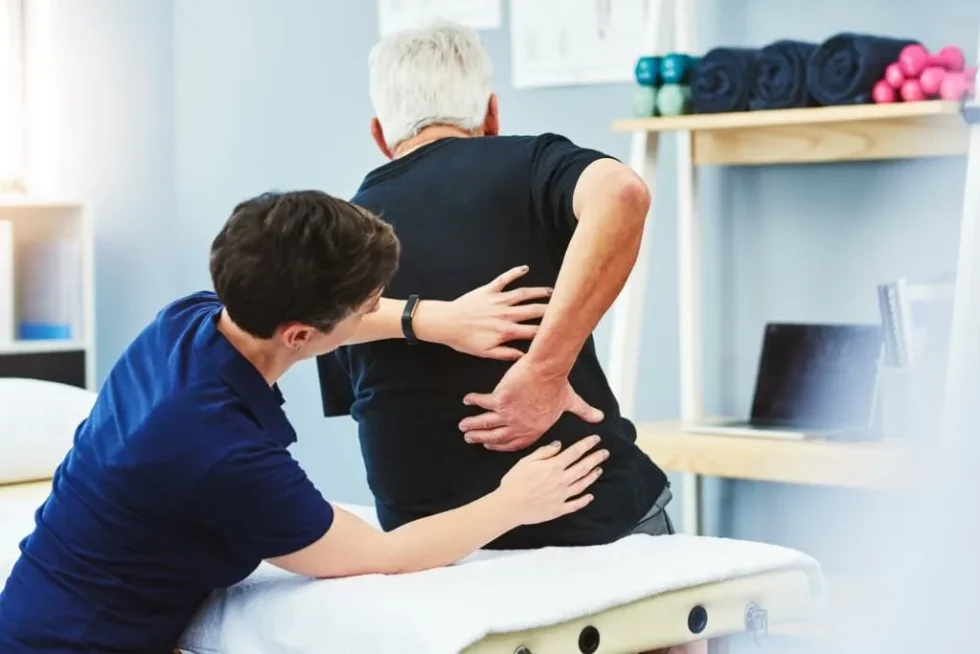Back Pain & Sciatica
Do you wake up in the morning with that nagging back pain? Are you feeling achy pain in your back, buttock, or even thigh? Are you having to watch what you do, because you are afraid you may hurt your back? If so, physical therapy can help.
Back pain and sciatica differ but are often confused with each other. Back is specific to the upper, mid or low back. Sciatica is a more diffuse, radiating pain down the buttock, thigh, and even leg. It is also possible to have radiculopathy, which is a radiating numbness, tingling, burning, or sharp pain to a specific part of the leg. This is often associated with a herniated disc, or entrapment of the nerve of that area, as it exits the spine.
If you are searching for back pain relief or sciatica relief, don’t rely on medicines to mask the symptoms. Your body is telling you of the deeper root cause of the problem, that needs to be fixed. Know that physical therapy should be your first treatment of choice, which eliminates your need for harmful painkilling drugs, such as opioids, or possibly avoid an invasive surgical procedure.

How will physical therapy in Batavia help with my back pain or sciatica?
For most people, back pain will come and go. However, what many people don’t realize, is that the underlying problem of poor joint movement, core weakness, and poor muscle coordination, will set them up for a future back injury, which can be significantly worse.
Back pain and sciatica are both completely treatable through physical therapy. Your physical therapist creates a specific treatment plan for you that is dependent upon your diagnosis. The early stages of your physical therapy treatment focus on quick pain relief.
As your pain reduces, your physical therapist will expand on strengthening your core muscle group with specific therapeutic exercises and stretches. The goal here is to increase your strength and range of motion to prevent re-injury of your spine. Finally, we teach you ergonomics and ways to make sure you know how to take care of your spine, avoiding future problems.
If you are suffering from sciatica, our physical therapists will implement specific leg stretches into your treatment plan to loosen the sciatic nerve. This restores the natural health of the nerve and quickly reduces symptoms.
How can I tell if it’s back pain or sciatica?
Sciatica
Sciatica is a specific type of back pain that is reported as being highly uncomfortable. However, it is also fortunately very simple to diagnose. People with sciatica experience pain along their sciatic nerve, which is the largest nerve in your body.
The sciatic nerve begins at your lower back and then splits at the base of your spine to extend further down to your buttocks, legs, and finally to the bottom of each foot. The sciatic nerve can become compressed or irritated, which causes a “shooting,” “stinging,” or “burning” sensation in your lower back, buttocks, legs, or feet
Back pain
“Back pain” is a term that can be caused by an array of different conditions. For example, you may experience back pain due to poor posture, a motor vehicle accident, or a lifting injury. The treatment plan that your physical therapist sets up for you, will depend on how you developed the back pain, in addition to its exact location and your past medical history.
Back pain can be described as acute, meaning it is short-term, or chronic, meaning it is long-term (typically lasting for three months or longer).

What caused my back pain or sciatica?
General back pain typically develops as the result of an injury. This can be due to repetitive straining motions, such as leaning down multiple times throughout the day to pick up a toddler, or a more serious, sudden trauma, such as a motor vehicle accident. Underlying conditions, such as herniated discs, can also cause immense pain, and cause radiculopathy pain to the thigh, leg, or foot. Degenerative disc disease is a common condition as we age, which can result in back pain. Those with this condition typically report dull, aching pains in their lower back, and have difficulty with prolonged standing or walking.
Sciatica’s technical name is “lumbar radiculopathy.” People who develop this condition are generally between the ages of 30 and 50. Many different types of injuries can cause the development of sciatica, including arthritis, bone spurs, or any other injury that impacts the sciatic nerve. Most commonly, we find that people lose their flexibility in the hips and pelvis, which causes the gluteus and hip muscles to become tightened. This in turn, alters the mechanics of the spine, and compression to the sciatic nerve as it travels through these tissues.
Back Pain Relief in Batavia
Our physical therapist can help to manage low back pain and sciatica symptoms through the use of targeted physical therapy treatment. This safe and prescription drug-free treatment option is non-invasive and designed to promote faster natural healing while providing fast pain relief. Instead of simply treating your symptoms, physical therapy is designed to alleviate pressure on the sciatic nerve for long-lasting relief. Want to learn more about the benefits of physical therapy for lower back pain and sciatica? Contact our physical therapist today for more information and be sure to schedule an initial consultation.


